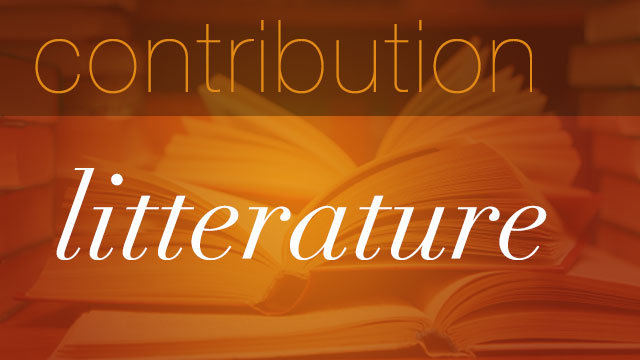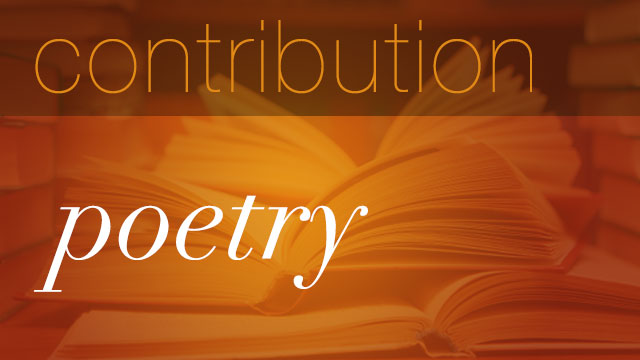All opinions are that of the author and not necessarily those of the website that it is published under.
Junaid reported from Sari aI-Saqati, from Ma’aroof al-Karkhi, from Imam Jaafar (al-Sadeq) who heard it from his noble ancestors that the Prophet (saaws) stated :
” Seeking Al-Haqq (Allah,The Truth) is exile”
—————-
In the ancient city, I lived two lives.
During the week, in a tastefully furnished apartment in a modern building, I lived with my elegant mother and my intellectual father. I attended a French school and took piano lessons from an accomplished Italian teacher.
On weekends, I lead a second life at my grandfather’s house where the courtyard opened to the sky, and a central fountain and low terraces filtered the sounds of the neighborhood and the smells of the old town. The neighbors, simple working-class families had gradually moved into that part of the city from the nearby rural areas.
I played with the kids in the alley and in the large house; we followed the cats, entered rooms deserted by relatives who had moved away over the years. We discovered large old books with dried yellowed pages, sepia pictures left behind and hand-colored postcards written in Arabic letters saying Turkish words that we could mouth but did not understand; bulky Ottoman armoires with tarnished mirrors returned to us our reflections, dreamier and sadder than we knew them- as if, we too, had disappeared a little along with the former inhabitants of the rooms.
Above all was the call to prayer, the Adhan that tore the air coming from the nearby mosque, punctuating the day and the night, entering our consciousness as we turned around and around in the courtyard, arms outstretched staring at the sky above until we felt dizzy, or we took turns on the homemade swing or confided secrets to one another in the shade of the antique citrus trees. It was natural to hear grown-ups saying things like “Don’t forget to wake me up for Fajr”, “Let’s go visit her after ‘Asr “or “Nana wants you home by Maghrib”- Sacred time regulating mundane existence.
In the evenings, the large radio set in the Iwan, the three-walled space that opened unto the courtyard, transmitted the Qur’an all the way from Egypt, read melodiously by the fabulous reciters of the time- the grownups listened serenely, nodding and praising in the waning light as we jumped rope quietly in a corner of the yard.
That was then…
Nowadays, I live in the New City, but I do not dwell in the ordered world of alternating rhythms. Here, I live in seasons.
In one season, I shop for fashionable crisp clothes that I wear to work. In my airy office, I make brisk decisions, I am engaged, dependable and interested. In between meetings, I look fondly at the modern abstract prints that I chose and hung on the wall. At lunch, over Donburi, I check the newspaper for reviews of new literature, for an upcoming chamber music concert or play, and I mentally plan in which museum my Sunday afternoon will be spent. At home, my prayer rug and my Qur’an remain open, inviting; I pass them by and can almost hear myself guiltily saying: “I will be right back”… but I will not be back until the change of season.
It happens one day, I could be practicing an absorbing Etude or concentrating on the choice of a frame for a new print … I sense the shadow of the other season hovering over me, coming to reclaim me. Whatever I am busy doing starts to escape my hands, meaning- itself -slips away swiftly like a dye running in a thin stream; in its place a deadening that crawls in every space: paralysis of the limbs as the heart awakens, the world flattens, the light goes out and the realization dawns: “What am I doing here in this empty place busy with these meaningless tasks?”
As the new season takes over, the Qur’an and the prayer rug are again my refuge, I return to the long dresses I bought once in the East; in the mirror, I no longer see myself. At night, a hand on my shoulder shakes me out of sleep, loud voices-at times, even bangs- surround my bed with calls to “Get up and pray”.
At the bookstore, where the literary section seems now lined with platitudes, the once beloved poets are mouthing futilities as I run to the shelf where self-help books share the space with “Islam”. If there is nothing new there, I will walk out with yet another translation of the Qur’an, just to feel safe holding on to it.
At home, the grand piano looms large in the room but I do not see it. That music is stale, unpalatable; all I want to hear is the Qur’an in the voice of the Egyptian Mashayekh of the old days reciting to a live audience that exclaims, at the end of each chanted verse, with great enthusiasm.
And so it goes…
I dreamed once that I lived in a country that had two seasons at the same time, where I listened to the Qur’an in the morning and played Bach in the evening, but I have not heard of a country where such seasons coexist, where one can feel whole all the time.
I am told that I am a well-integrated Western Muslima, I guess I am, all the way, some of the time.
The rest of the time, I am that person- neither man nor woman- walking along a deserted road, wearing light shapeless clothes, owning nothing, belonging to no one, going nowhere, in the company of the One whose company leaves me without need.
All opinions are that of the author and not necessarily those of the website that it is published under.





